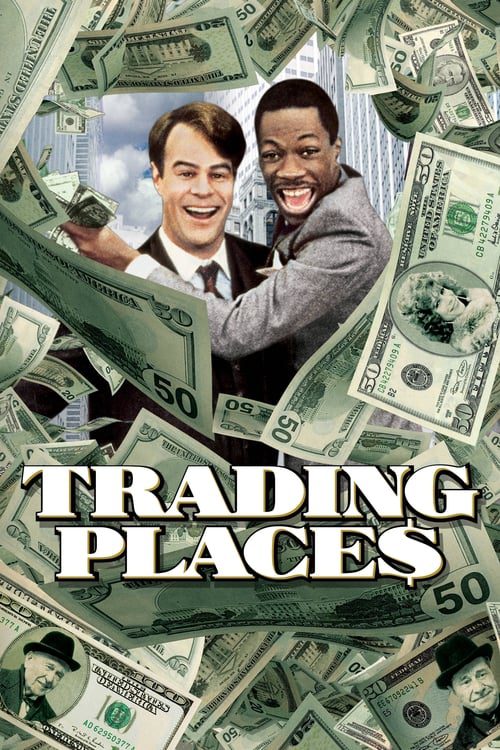John Landis directed the 1983 American comedy Trading Places, which Timothy Harris and Herschel Weingrod wrote for the screen. The film, which stars Jamie Lee Curtis, Eddie Murphy, Ralph Bellamy, Don Ameche, Dan Aykroyd, and Murphy, tells the tale of two men whose lives intersect: Murphy, a poor street hustler, and Aykroyd, an upper-class commodities broker. The men are unintentionally made the subjects of a complex bet intended to see how each man would fare if their circumstances were reversed.
Culture Clash and Societal Hypocrisy
The ensuing cultural clash is both humorous and thought-provoking. Louis, stripped of his privilege, experiences the harsh realities of poverty and discrimination. Navigating the unfamiliar world of wealth and power, Billy Ray exposes hypocrisy and greed at their core.
The film brilliantly satirizes the upper class, highlighting their elitism, casual racism, and ruthless business practices. The Dukes, with their callous pronouncements on “natural selection” and the “genetic underclass,” represent the very embodiment of this privileged, detached perspective.
Beyond Laughter: A Critique of the System
However, “Trading Places” goes beyond mere satire. It subtly critiques the systemic inequalities that perpetuate poverty and disadvantage. We see how Billy Ray’s intelligence and street smarts are stifled by societal prejudice, while Louis’s incompetence flourishes due to his inherited wealth and connections.
From Betrayal to Redemption: An Uneasy Alliance
As the men navigate their swapped lives, they initially clash but eventually form an unlikely alliance. Louis learns humility and empathy, while Billy Ray gains valuable insights into the system he seeks to expose. This unlikely partnership symbolizes hope, suggesting that understanding and collaboration can bridge the vast socioeconomic divide.
Comedy with a Bite: Enduring Relevance
Despite its comedic tone, “Trading Places” packs a powerful punch. It forces us to confront uncomfortable truths about societal biases and the impact of economic injustice. While the film offers a heartwarming resolution, it leaves a lingering question: how much has truly changed since its release?
Timeless Humor and a Cautionary Tale
With its witty dialogue, slapstick humour, and unforgettable characters, “Trading Places” remains a thoroughly entertaining film. However, its true significance lies in its ability to provoke thought and reflection. It serves as a timeless reminder of the dangers of societal divisions and the importance of empathy and understanding in forging a more equitable world.
So, the next time you watch “Trading Places,” remember it’s more than just a holiday comedy. It’s a sharp critique of power imbalances, a poignant examination of human potential, and a call to action for a more just society.

